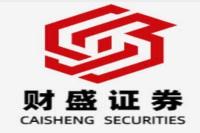Decoding the Hong Kong Stock Market Dip: A Deep Dive into Recent Volatility and Key Players (SEO Meta Description: Hong Kong Stock Market, Hang Seng Index, Hang Seng Tech Index, Xinyi Solar, SenseTime, Stock Market Analysis, Investment Strategies)
Dive into the fascinating world of Hong Kong's dynamic stock market! Imagine this: one moment you're riding high on the wave of potential profits, the next you're bracing for a market downturn. That's the exhilarating, and sometimes terrifying, reality of investing in Hong Kong's vibrant financial landscape. This isn't just another dry market report; it's a behind-the-scenes look at the recent volatility, focusing on key players like Xinyi Solar and SenseTime, revealing the intricate factors driving these fluctuations and providing actionable insights for savvy investors who aren't afraid to navigate the complexities of the global financial arena. We’ll unpack the data, analyze the trends, and, most importantly, empower you with the knowledge to make informed decisions, whether you're a seasoned pro or just starting your investment journey. Forget boring jargon; we’re speaking plain English, peppered with real-world examples and expert analysis. Buckle up, because this is going to be a wild ride! We'll explore the ripple effects of global events on Hong Kong's market, the crucial role of technology stocks, and the potential opportunities lurking beneath the surface of recent dips. Get ready to uncover the secrets behind the headlines and discover how you can navigate the complexities of this fascinating market. This isn't just about numbers on a screen; it's about understanding the human element driving those numbers, the hopes and anxieties of investors, and the strategic moves of industry giants. So, are you ready to unlock the secrets of Hong Kong's stock market? Let's begin!
Hong Kong Stock Market Performance Analysis
The recent downturn in the Hong Kong stock market, as evidenced by the Hang Seng Index (HSI) dropping 0.5% and the Hang Seng Tech Index (HSTI) falling 1.39%, demands a closer examination. While a single day's performance doesn't necessarily dictate long-term trends, it underscores the inherent volatility within this market and highlights the need for a nuanced understanding of the factors at play. The significant drop experienced by specific companies, such as Xinyi Solar (down nearly 5%) and SenseTime (down over 13%), warrants a deeper dive into their individual circumstances and the broader market context. This isn't just about numbers; it's about understanding the narrative behind the data.
Understanding the Decline in Xinyi Solar and SenseTime
The sharp decline in Xinyi Solar's share price might be attributed to a variety of factors. These could include, but aren't limited to: shifts in global demand for solar energy, changes in government policies regarding renewable energy incentives, or even company-specific news impacting investor confidence. Similarly, SenseTime's substantial drop could be linked to broader concerns about the technology sector, investor sentiment regarding AI companies, or specific developments within the company itself. Remember, folks, the stock market is a complex beast, and multiple factors often intertwine to shape its performance.
It's crucial to distinguish between short-term fluctuations and long-term trends. A single day's drop doesn't necessarily signal a catastrophic event, but it does warrant analysis and a reassessment of investment strategies. For instance, a long-term investor might choose to hold onto their Xinyi Solar shares, viewing the drop as a temporary setback in a promising sector. However, a short-term trader might react differently, adjusting their portfolio based on the immediate market movement.
Global Macroeconomic Factors and Their Impact
Let’s not forget the elephant in the room: global macroeconomic factors. The interconnected nature of global markets means events in one region can significantly impact others. Interest rate hikes in major economies, geopolitical instability, or shifts in global supply chains can all contribute to market volatility in Hong Kong. It’s like a domino effect; one thing falls, and the rest may follow suit. Therefore, staying informed about global events is as crucial as understanding individual company performance. This requires a holistic approach, acknowledging the interplay between local and global forces.
Sector-Specific Analysis: Technology and Renewables
The performance of the Hang Seng Tech Index highlights the vulnerability of the technology sector to shifts in investor sentiment. Recent concerns about regulation, competition, and profit margins can significantly impact valuations within this sector. Similarly, renewable energy companies, like Xinyi Solar, are susceptible to fluctuations in commodity prices, government policies, and technological advancements. Thus, understanding the specific risks and opportunities within these sectors is critical for informed investment decisions.
Navigating Market Volatility: A Strategic Approach
Investing in the Hong Kong stock market requires a strategic approach that acknowledges the inherent risks and rewards. This involves diversifying one's portfolio, conducting thorough due diligence, and developing a long-term investment strategy. Don't rely solely on short-term gains; rather, focus on building a robust portfolio capable of weathering market fluctuations. Remember, patience and discipline are key virtues in the world of investing.
Frequently Asked Questions (FAQs)
Q1: Is the recent decline a sign of a larger market crash?
A1: Not necessarily. While the dip is noteworthy, it's premature to conclude it signals a broader market crash. Market fluctuations are normal, and a thorough analysis is needed to understand the underlying causes before drawing such conclusions.
Q2: Should I sell my shares in Xinyi Solar and SenseTime?
A2: The decision to buy or sell depends heavily on your individual investment goals and risk tolerance. Consider your long-term investment strategy and consult with a financial advisor before making any rash decisions based on short-term market movements.
Q3: How can I protect my investments during market volatility?
A3: Diversification is key. Spread your investments across different sectors and asset classes to reduce risk. A well-diversified portfolio can cushion the impact of market downturns.
Q4: What are the long-term prospects for the Hong Kong stock market?
A4: The long-term outlook depends on various factors, but Hong Kong's strategic position and economic fundamentals generally suggest a positive long-term outlook, although short-term volatility should be expected.
Q5: Are there any specific investment opportunities within the current market conditions?
A5: While the market is volatile, opportunities may exist for those willing to take calculated risks. Thorough research and understanding specific company performance is crucial in identifying undervalued assets.
Q6: Where can I find reliable information about the Hong Kong stock market?
A6: Reputable financial news sources, brokerage firms, and financial analysis websites provide reliable data and insights, but always verify information from multiple sources.
Conclusion: Embracing the Challenges and Opportunities
The Hong Kong stock market, like any other dynamic market, presents both challenges and opportunities. While recent volatility might spark concern, it also presents opportunities for savvy investors who are well-informed and possess a long-term perspective. By understanding the underlying factors driving market performance, diversifying investments, and conducting thorough research, investors can navigate the complexities of this market and potentially achieve their financial goals. Remember, knowledge is power in the world of finance. Stay informed, stay disciplined, and embrace the exciting, albeit sometimes unpredictable, journey of investing in the Hong Kong stock market. Don’t be afraid to seek professional advice if you need it! Good luck!



